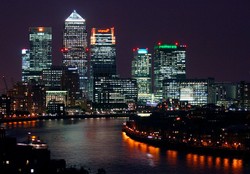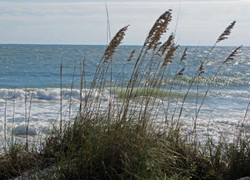Detroit, The Motor City.
At various times Detroit also earns the title Murder City. With hundreds of homicides each year, over half of them narcotics related.
This could be related to other financial problems.
The city of Detroit filed for bankruptcy in July 2013.
But the writing was clear before this, in 2009 General Motors filed for bankruptcy. General Motors and Ford are the two mainstays of the automobile industry of Detroit.
Henry Ford established "Fordism" in Detroit, mass production combined with competitive pricing and high labor wages.
The Model T Ford in 1908 was the foundation stone of Ford's ultimate $188 billion dollar empire. He also brought prosperity to many others, offering $5 pay per day in 1914 which was double the usual daily pay, if you passed his Social Department's tests.
These measures cause a massive influx of highly paid workers which maintained Ford's competitiveness and industrial development.
This was the reason for Detroit, its purpose, to make cars competitively for the mass market.
Like Angkor Wat, that purpose was lost.
In the 1970s there were Renaissance programs to try and rejuvenate Detroit, but which only worked on a cosmetic level. The focus on building for a competitive mass market was lost and how that displayed was generally as a determination to keep building large cars, when globalization and the resultant overseas competitors were showing people wanted different cars.
Ford once said that customers could have any colour they wanted, as long as it was black. Black was his preference because it dried fastest and let the cars move along production lines faster.
But with competition one cannot have that attitude.
Angkor Wat had a religious purpose and lost it, Detroit had a manufacturing purpose and lost it.

















 We are always wrongon 12/12/2014
We are always wrongon 12/12/2014
 Conspiracies are Realon 03/24/2014
Conspiracies are Realon 03/24/2014
 Workout for the Doleon 02/26/2014
Workout for the Doleon 02/26/2014
 Fiery New Brands for Aussie politicson 02/25/2014
Fiery New Brands for Aussie politicson 02/25/2014


Comments
I also found this a thought provoking thesis. Regarding internet cites as cities gives an interesting perspective.
It is interesting to think about online cities such as Facebook, and how Detroit has lost its permanence.
Interesting, as the name seems to vary. The official name is Blackburn with Darwen, but some call it Darwen under Blackburn. I think that the usage depends upon which of the two towns you originate from. Lancashire people just call them Darwen and Blackburn.
While Manchester has a reputation for being rainy, it is not a permanent deluge, but is prone to regular light to moderate rainfall. There are places in Britian that are far rainier than Manchester, e.g. Seathwaite, Engand's rainiest spot, and Blaenau Ffestiniog in Snowdonia
My Danish forefathers assure me that this expulsion was the result of the constant rain driving the Danes nuts. This knowledge is chronicled in the tales of Hagar the Horrible. :)
My wife is from Manchester area, a little town called Darwen-under-Blackburn.
"Neath the hills, bleak and barren,
Lies dirty Darwen"
The pronunciation is Darren in the song.
I truly enjoyed visiting the churches in the area. And the people were truly wonderful. I was so envious of the storytelling and language skills that are so common over in the UK.
Good article. An example of a port city that lost its port, but survived is Chester, UK. The name means camp, and it was originally a Roman legionary base intended to be at the centre of the British Isles, the capital, as the Romans planned to invade Ireland as well as Britain. But the Irish invasion never happened, but the city kept its port, until the river started to silt up in the thirteenth century. At that time King John needed a deep water port to invade Ireland, so the city of Liverpool was established and took Chester's trade. Chester survived as a market town, county capital and ultimately cultural centre. Culture and history buffs should regard Chester as well worth a visit.
But Chester is one of the two UK cities to still retain walls, the other being Conway. You can walk along Chester's Roman walls.
Cities can survive destruction. Manchester, near where I live, was destroyed by the Vikings in 872, but now it is a thriving English city. In Manchester town hall there is a huge mural of the expulsion of the Danes from Manchester. Sadly it is not in an area where the public habitually go.
Thanks Rose! It's interesting how our cities change.
Sometimes cities die because of geographical reasons. Bruges was big in medieval times and then it's river silted up making it hopeless for trade.
Thank you, I'm on my way to have a look. I've never seen the Pinterest site.
I shared this on our community Pinterest board.
http://www.pinterest.com/pin/18394396...
Thanks Cmoneyspinner, it's tricky. People put up boundaries around themselves because they got hurt before. And those boundaries can make relations harder for people that come after.
We have those external boundaries too, like the Mexico fence, China's Great Wall, and its 13 foot razorwire fence with North Korea that they built in 2011. Sometimes fences can make us feel safe but at the price of believing everyone on the other side is bad.
I'd hate to have to be the one to solve that problem.